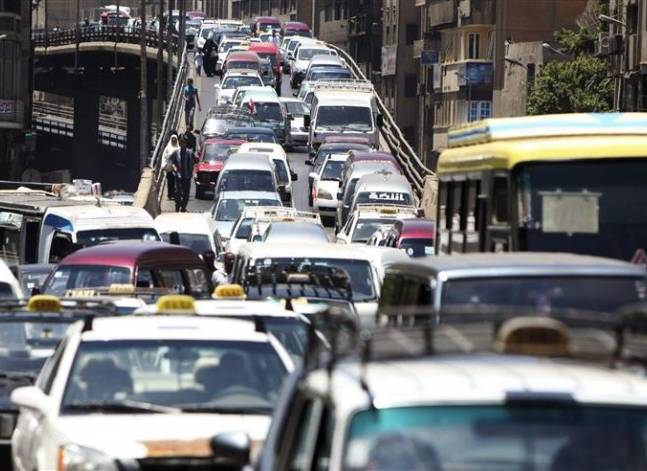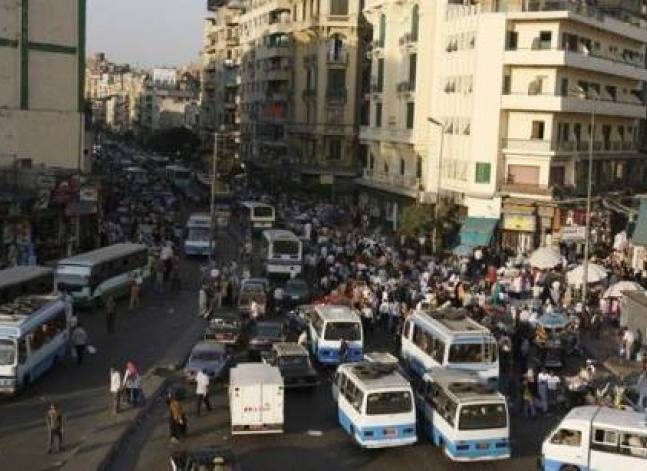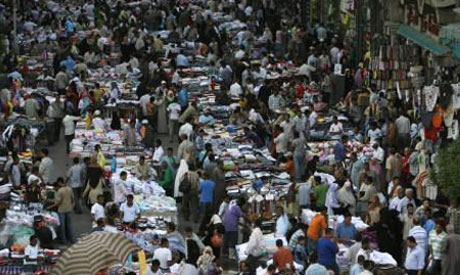Latest NEWS
- Aswat Masriya, the last word
- Roundup of Egypt's press headlines on March 15, 2017
- Roundup of Egypt's press headlines on March 14, 2017
- Former Egyptian President Hosni Mubarak to be released: lawyer
- Roundup of Egypt's press headlines on March 13, 2017
- Egypt's capital set to grow by half a million in 2017
- Egypt's wheat reserves to double with start of harvest -supply min
- Roundup of Egypt's press headlines on March 12, 2017
Egypt's capital set to grow by half a million in 2017
People shop at Al Ataba, a popular market in downtown Cairo, Egypt March 9, 2017. REUTERS/Mohamed Abd El Ghany
Cairo's population is set to grow by 500,000 this year, more than any other city in the world, adding to the pressure on an Egyptian economy struggling to recover from six years of political turmoil.
Greater Cairo, a metropolitan area including Cairo and parts of the Giza and Qalyubia provinces, is home to some 22.8 million people and will gain another half a million in 2017, a Euromonitor International report released last week shows.
That represents a quarter of Egypt's 92 million. The national natural population growth of 2.4 percent per year is double the average of other developing countries, said Mohamed Abdelgalil, adviser to official statistics agency CAPMAS.
Stinging poverty in southern Egypt leads many families to have several children in the hope they can become sources of income. Those children eventually migrate to larger cities for job opportunities scarce in their hometowns.
"In rural areas, and in the south in particular, poor families have many children because they see these children as a safety net," Maysa Shawky, the head of the National Population Council, told Reuters in an interview.
"Also, many of them have daughters until they have sons," she added. "They want to produce breadwinners - instead of hiring a worker, they could have their children help them."
Shawky said awareness campaigns at universities and schools have begun as part of a national population strategy.
NEW CAPITAL
Internal migration is one of the main causes of overpopulation in Cairo. Egypt lists 351 slums as "unsafe", most of them in the sprawling capital where the poorest have built ramshackle homes that lack basic amenities such as mains sewage and water. Some 850,000 people are believed to live in such dangerous slums.
"For the average citizen to not be affected by hikes in the prices of goods and services, the economic growth rate must be double the natural population increase rate," Abdelgalil said.
Egypt's economic growth was 4.3 percent in 2015-2016 - not enough to achieve that. The IMF expects it to be about 4 percent this year.
A new administrative capital, announced in March 2015, is intended partly to reduce the crowding in Cairo. Some 45 km (28 miles) to the east, it will be home to government ministries, housing and an airport.
People will start moving to the as yet-unnamed new city in 2018, said Khaled Abbas, assistant to the housing minister for technical affairs. Work on 17,000-18,000 residential units is nearing completion and they will be put up for sale in April.
"Egypt's population is expected to reach 160-180 million in 40 years. Where will all these people go?" said Abbas. "We're also working on developing areas in northern and southern Egypt."














